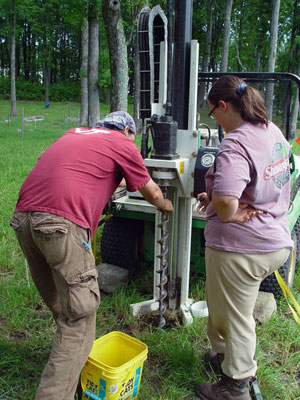Science Technician
Tasks & duties

Science technicians may do some or all of the following:
-
prepare equipment, materials, products and specimens for experiments and surveys
-
perform experiments and evaluate the results
-
record what happens during experiments and the conclusions reached
-
set up, operate and maintain laboratories for teaching and research
-
develop new methods and equipment
-
help with or carry out field and site surveys and tests
-
write reports and papers on research results
-
maintain databases
-
order laboratory supplies and equipment
-
be involved in health and safety issues, including ensuring staff are properly trained in health issues
-
give laboratory tours and tutorials to visitors
-
administrative duties
Specialisations
Science technicians usually specialise in a particular scientific discipline, such as physical or life sciences.
Technicians employed at small organisations usually do many types of tests, whereas those at larger organisations are more likely to specialise in one particular type of experiment.
Skills & knowledge

Science technicians need to have:
-
knowledge of a science discipline such biology, chemistry or physics
-
research skills
-
skill in analysing and interpreting research results and other information
-
practical skills for performing experiments and operating scientific equipment
-
problem-solving skills
-
planning and organisational skills
-
communication skills
-
writing skills, for writing reports and for publications
-
maths and computer skills
Entry requirements
To become a science technician you usually need to have a relevant science, technology, or science and technology degree. Some employers only require a National Diploma in Science (Level 5 or 6), while others prefer a Bachelor of Science in the relevant area of specialisation.
Secondary education
A tertiary entrance qualification is required to enter tertiary training. Sixth Form Certificate or NCEA equivalent science and maths is useful.
Training on the job
Skills are gained on the job. Because different science projects and teams often have unique procedures using customised equipment, physical sciences technicians usually receive a lot of on-the-job training.
Useful experience
Useful experience includes other science or laboratory work, or work in occupations related to the area of science you wish to work in, such as electronics for physics technicians or plants for horticultural technicians. While studying, science undergraduates often get experience by working as science technicians part time, and/or during the holidays.
Related courses
Biochemistry and Cell Biology
Botany
Food Science and Biotechnology
Geology
Human Biology
Laboratory Technology
Physics
For more information, please refer to Career Services.
Document Actions
